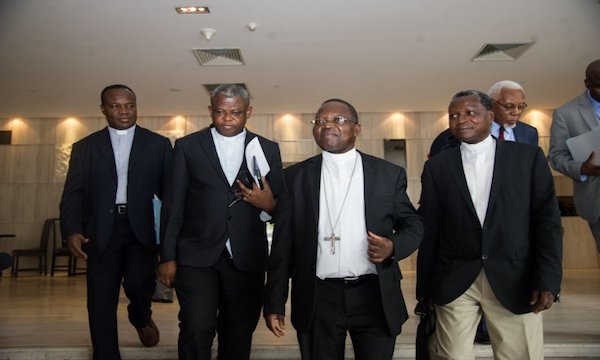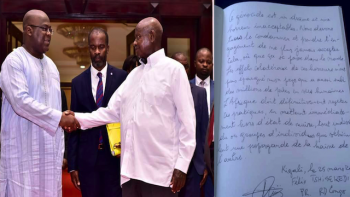"I have never promised anything at all, " the Democratic Republic of the Congo (DRC) dictator Joseph Kabila said on Saturday, June 3, 2017. The secretive Joseph Kabila was giving a rare interview, having chosen the German media Der Spiegel as his latest foreign medium in the last five years.
As predicted by AfroAmerica Network, Joseph Kabila has always given hints, through his inner circle that he will never accept the elections, despite an agreement signed on December 31, 2016 by his presidential majority and opposition leaders, following negotiatiations mediated by the Catholic association of bishops known as CENCO.
"I wish to organize elections as quickly as possible", but, "It is up to the electoral commission to address the question of date," Jospeh Kabila told Der Spiegel, before adding that "organizing elections could take longer or not longer," given that "we want perfect elections, not just elections".
He refused to commit to organize elections before December 31, 2017.
Despite pressure, both internal and external, on DRC President Joseph Kabila to accept the peaceful transfer of power, with major concessions from the opposition to allow a smooth transition, Joseph Kabila has so far refused to approve the execution of the provisions of the accord brokered by CENCO. Since the beginning there were signs that Joseph Kabila has long expected this outcome. He has already brought in Rwandan special forces to reinforce his Republican Guard, in preparation of the withdrawal of the Angolan troops and, according to sources in Katanga, his region of origin, he has started to prepare a referendum to change the constitution, to eliminate terms limit provisions, similar to what happened in the Republic of the Congo, Rwanda, and Uganda.
As Joseph Kabila hangs onto power, the country has been rocked by deadly clashes and massacres of young people and children, especially in the provinces of Kasai ((see background here), Central DRC and in the capital city of Kinshasa.
The situation has deteriorated so much that some opposition figures contacted by AfroAmerica Network have rejected the deal itself, even if it were implemented. They pointed to the evident inability of the signatory parties to start the implementation of the agreement, months after its signature. Accusing Joseph Kabila of intentionally blocking the accord so that he may rig elections, they questionned the legitimacy and the credibility of the planned elections at the end of the year, and expressed their intentions to publicly call on DRC President Joseph Kabila to step down without condition.
Pope Francis said on March 13, 2017 that he is cancelling a long planned trip to DRC. He was due to travel to DRC and its neighbour, the Republic of Congo, in July-August 2017.The reaction by Pope Francis followed multiple international condemnations of the political impasse in the DRC (see ACP-EU reaction here.)
The U.S. ambassador to the United Nations, Nikki Haley, said on Wednesday March 29, 2017, commenting as a proposal on MONUSCO's renewal was being debated, that the U.N. peacekeepers in the Democratic Republic of Congo (DRC), serving within MONUSCO, are aiding a DRC government that is "corrupt and preys on its citizens".

















